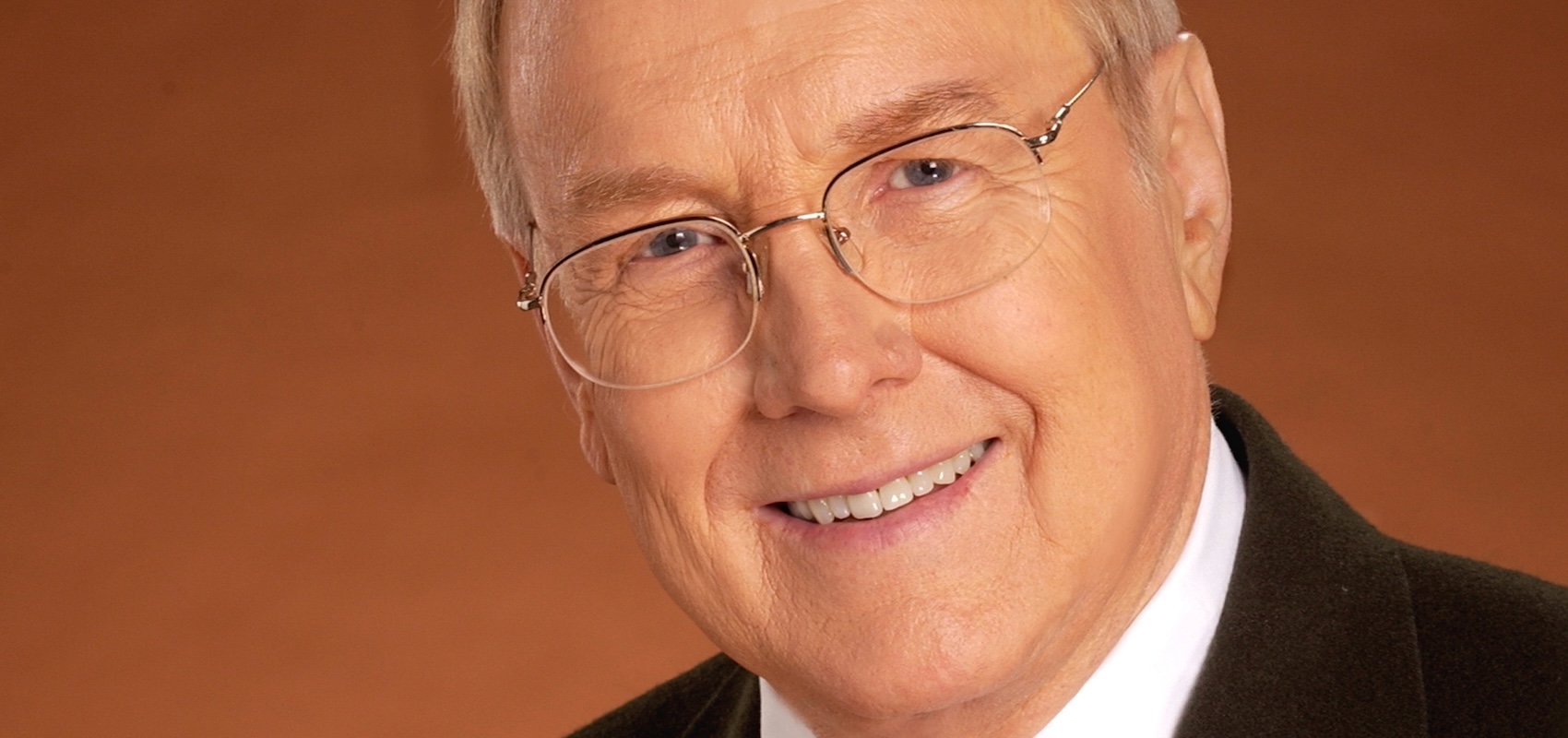
Jerry Falwell. R. C. Sproul. John MacArthur. And now James Dobson. Over the last twenty years, death has slowly but surely claimed a generation of conservative evangelical powerhouses who shaped the hearts, minds, and souls of millions of American Christians.
What’s next? Or better, who’s next? Dr. James Dobson would say, “You are.” Especially if you’re a parent.
Dobson entered into his eternal rest on August 21 after decades of service defending the basic building blocks of American life, the trifecta that is all too often dismissed by “enlightened” Protestants and Catholics alike: faith, family, and freedom—with, of course, a focus on the family.
Much has been said, even in these pages, about the lack of “evangelical elites.” And even though what many may remember Dobson for doesn’t immediately evoke the cultured connotations of high society—corporal discipline, the Adventures in Odyssey radio program, purity culture, an aggressive stand against the LGBT movement, and endorsing Donald Trump in 2016 (all good things in my humble opinion)—Dobson was a genuine “elite.” He held a PhD in child development psychology and worked as an associate clinical professor of pediatrics for fourteen years.
It was from this position as a credentialed and practicing expert, driven by concerns he spotted over fifty years ago as the acid tides of a secular, psychological, and therapeutic approach to parenting began to rise, that he wrote his best-selling and perhaps most controversial book, Dare to Discipline.
For decades now, critics, appreciators, and adopters of Dobson’s methods alike have waged holy war over what’s frankly a biblically defensible and straightforward principle: Parents should be in control of their homes, demand obedience, discipline their kids, factor in the Christian understanding of sin and repentance, and yes, even spank them when necessary. You can agree or disagree with Dobson, but this was standard fare for most of Christian history.
Building on the success of Dare to Discipline, Dobson built a media empire with Focus on the Family. Dobson smartly translated his influence and reach into political action and even power, with the New York Times dubbing him “the nation’s most influential evangelical leader” by 2005, after he promised to wage “a battle of enormous proportions from sea to shining sea” if President George W. Bush failed to appoint the right people to the Supreme Court or if Senate Democrats blocked good picks.
Today, Colorado Springs is a hotbed of evangelicalism because Dobson moved his headquarters there in 1991. The man had it all and built it all—degrees, books, massive radio shows, political influence, cultural power, and even a town.
There is much for evangelicals to learn today from his accomplishments. While I never knew Dobson, my parents did. I might have begrudged the application of his methods during my often troublesome youth, but I certainly benefited from them. Herein is the first of three lessons we should learn from Dobson: Fight for the family.
Whatever your views on corporal discipline, Dobson spent his strength trying to get Christian families to do the hard but necessary work of raising Christian children. Dobson understood the importance of the deep magic found in Deuteronomy 6:7–8 and the call for parents to “impress” the commands of God “on your children.” What will a Dobson-esque approach to Christian parenting look like in a digital age? I’m not sure. But the lesson remains: Parents, and especially fathers, must take their role of raising the next generation far more seriously.
Second, fight for marriage. Dobson ditched the clinical work of his early career and resigned in protest from the American Psychological Association after it declassified homosexuality as a mental disorder in 1973. Dobson had the foresight to exit the ride before it started down the slippery slope. He spent the rest of his life warning others of the disaster that would ensue if we, the unbound revolutionaries of modernity, tried to cut the ties that bind us to biology, nature, and God’s created order. If you want highlights of the tremendous work Dobson did to oppose the gay lobby, I’ll simply refer you to LGBTQ Nation’s obituary: “James Dobson, massively influential Christian bigot, dies at 89.” May we all live lives that evoke such rancor.
Third, love the fight. “Well, the battle’s drawn,” reflected Albert Mohler on his podcast as he commemorated Dobson’s life and legacy. “And Dr. Jim Dobson understood that. He never pulled back from the battle.” Too many Christians today seem to think that if the left doesn’t like them, or if secular Republicans think they’re weird, or if they offend a keyboard warrior on Reddit, they’ve done something wrong. Have you ever stopped to consider that it means you’re doing something right? Dobson did.
If Dobson hadn’t fought for family and marriage—and loved the fight—I doubt that so many haters would have been dancing on his grave the week after his death.
Dobson had the credentials. He was the kind of evangelical elite we need more of. Most importantly, he had courage, a virtue Christians desperately need today. Some may view him as “cringe.” If so, maybe we need more cringe. Imagine how America would improve if millions more Christians dared not just to discipline, but to be a Dobson.
Image by Focus on the Family, licensed via Creative Commons. Image cropped.
The Church’s Answer to the World (ft. Carter Griffin)
In the latest installment of the ongoing interview series with contributing editor Mark Bauerlein, Fr. Carter Griffin…
The Lost Art of Saying “No”
Conservative pundit Matt Walsh recently contended that “we have to recapture the long-lost art of saying ‘no.’”…
The Cambrian Implosion
A historical moment ago, it was too obvious for words, but: Life is a blessing. So to…
